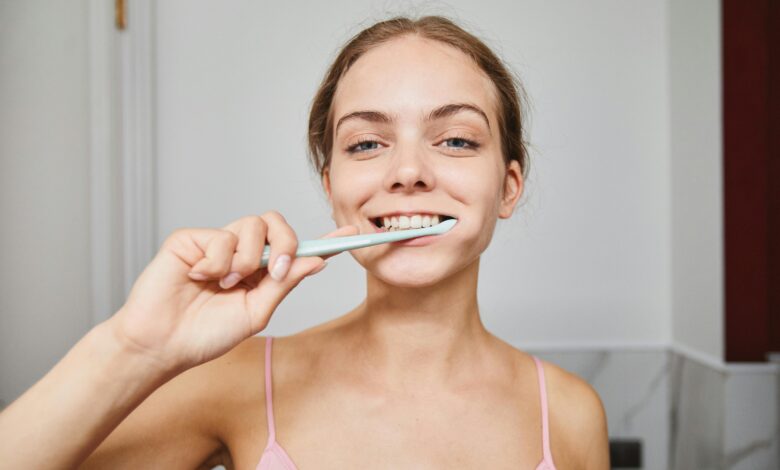5 Things You Should Do in Your Oral Hygiene Routine

Maintaining a good oral hygiene routine is critical for keeping teeth and gums healthy and avoiding numerous dental issues. A systematic and well-structured approach to oral care can lower the incidence of cavities, gum disease, and bad breath, ultimately benefiting general health.
Here are five things you should do in your oral hygiene routine to ensure your teeth and gum are healthy.
1. Brushing With the Right Technique
Brushing is the most important aspect of any oral hygiene practice, but many people perform it incorrectly. Removing plaque without compromising enamel or generating gum recession is best done with a soft-bristled toothbrush. Brushing too forcefully can gradually erode tooth enamel, which would cause sensitivity and raise a cavity risk. While protecting the gums, holding the toothbrush at a 45-degree angle and applying soft, circular strokes aid in efficiently cleaning teeth. Brushing should last at least two minutes to guarantee that every surface of the teeth including the front, back, and chewing surfaces is well cleaned.
2. Flossing Daily for Complete Cleanliness
Flossing is frequently ignored, yet it is an essential component of a proper dental hygiene regimen. Food particles and plaque can build between teeth even with consistent cleaning, which causes gum issues and decay. By removing trash from places a toothbrush cannot reach, flossing helps to minimize plaque development and lower the cavity risk. Eliminating germs causing gingivitis and periodontal disease also significantly helps to preserve gum health. While flossing guarantees complete cleaning, a soft back-and-forth motion helps to prevent gum damage. Starting flossing causes bleeding for many people, and this is usually an indication of inflammation brought on by plaque accumulation. Frequent flossing reduces bleeding and strengthens the gums.
3. Rinsing With an Effective Mouthwash
Mouthwash is an important part of any oral hygiene practice, as it provides benefits beyond just refreshing breath. By helping to kill dangerous germs, an antibacterial mouthwash lowers the likelihood of gum disease and cavities. It provides further defense against plaque accumulation by reaching places in the mouth that brushing and flossing would overlook. Selecting a mouthwash with fluoride will help to strengthen enamel even more and stop tooth decay. For those with sensitive gums, alcohol-free mouthwashes offer a wonderful choice since they have the same advantages without aggravating dryness or irritation. At least thirty seconds of rinsing guarantees that the active components efficiently eliminate germs and preserve a balanced oral environment.
4. Using a Tongue Cleaner for Fresh Breath
Cleaning the tongue is an important part of maintaining dental hygiene, although it is often overlooked. The tongue contains bacteria that can cause bad breath and contribute to plaque accumulation. Use a high-quality tongue scraper to remove microorganisms, food particles, and dead cells from the tongue’s surface. Unlike a toothbrush, which cannot effectively clean the tongue’s surface, this specialist tool is intended to provide a more complete cleaning. Regular tongue cleaning minimizes the number of dangerous microorganisms and promotes overall oral health. It also improves the capacity to taste food properly by eliminating any accumulation that can interfere with taste buds.
5. Drinking Plenty of Water for Natural Cleansing
Maintaining oral hygiene depends much on being hydrated, which is not just good for general health. Water helps eliminate food particles and germs, thus decreasing plaque development and lowering the cavity risk. It also neutralizes mouth-produced acids generated by germs, therefore shielding enamel from erosion. Particularly after meals, drinking water helps the mouth to cleanse itself, therefore reducing the accumulation of toxins that could aggravate gum disease and foul breath. Fluorinated water gives extra defense against decay and helps to strengthen teeth. Water is the finest beverage to keep a healthy dental environment, unlike sweet or acidic ones that encourage bacterial development.
Conclusion
A good oral hygiene routine consists of several actions to guarantee superb oral health. Including these fundamental habits in daily life improves dental health and reduces future dental care needs.

